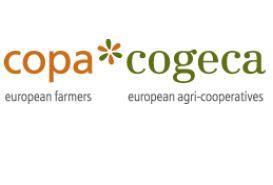
European farming organisation Copa-Cogeca has this week used a high-level meeting with EU Commissioner Joaquín Almunia to highlight the major role of producer organisations, such as cooperatives, as a driving force in ensuring a competitive agri-food sector across the bloc, while also calling for changes to be made to competition rules.
Cogeca president Paolo Bruni noted that cooperatives represented the principle form of producer organisation in the EU, and explained that the need to promote them was now a high priority in the wake of the economic downturn.
'We welcome the fact that the role and responsibilities of producer groups under EU Commission plans on future EU quality policy has been recognised for the first time,' said Mr Bruni. 'It is vital that producer groups play an active role in managing EU regional produce covered by legislation on protected geographical indications (PGIs) and designated origins (PDOS).
'The power of producer groups must be strengthened so that they can better manage and control the quantities produced, in order to ensure market stability and a dynamic EU agri-food sector,' he added. 'This is particularly crucial at a time when EU farmers and their cooperatives are facing extreme market volatility, which also affects consumers. To be more effective, consumers also need to be made more aware of these schemes which promote quality EU produce on EU and non-EU markets.'
Copa president Padraig Walshe warned that EU farmers would continue to get an unfair share of the retail price due to the buying power of major supermarkets, and said that competition rules needed to be adjusted to enable growth of producer organisations such as cooperatives.
'EU producers and agricultural organisations also need to be on an equal footing,' Mr Walshe explained. 'Major differences in interpretation by national authorities and courts have been observed, in particular when defining the concept of the relevant market. EU competition rules therefore need to be applied in a more harmonised way in the agricultural sector.'
Mr Walshe highlighted an increased presence of EU imports that he said failed to meet high EU standards, calling on the bloc's food safety, environmental and animal welfare standards to be applied to imports.
'Furthermore, the victims of abusive practices are often hesitant when it comes to going to court as they are worried about possible commercial retaliatory action, such as losing an important client,' he added. 'To guard against this, certain legal procedures need to be provided for by the different national legislative procedures.'



